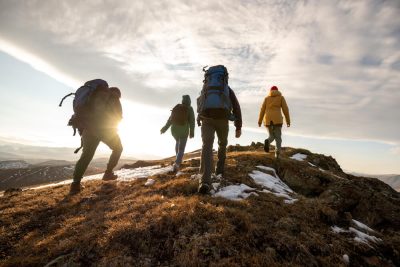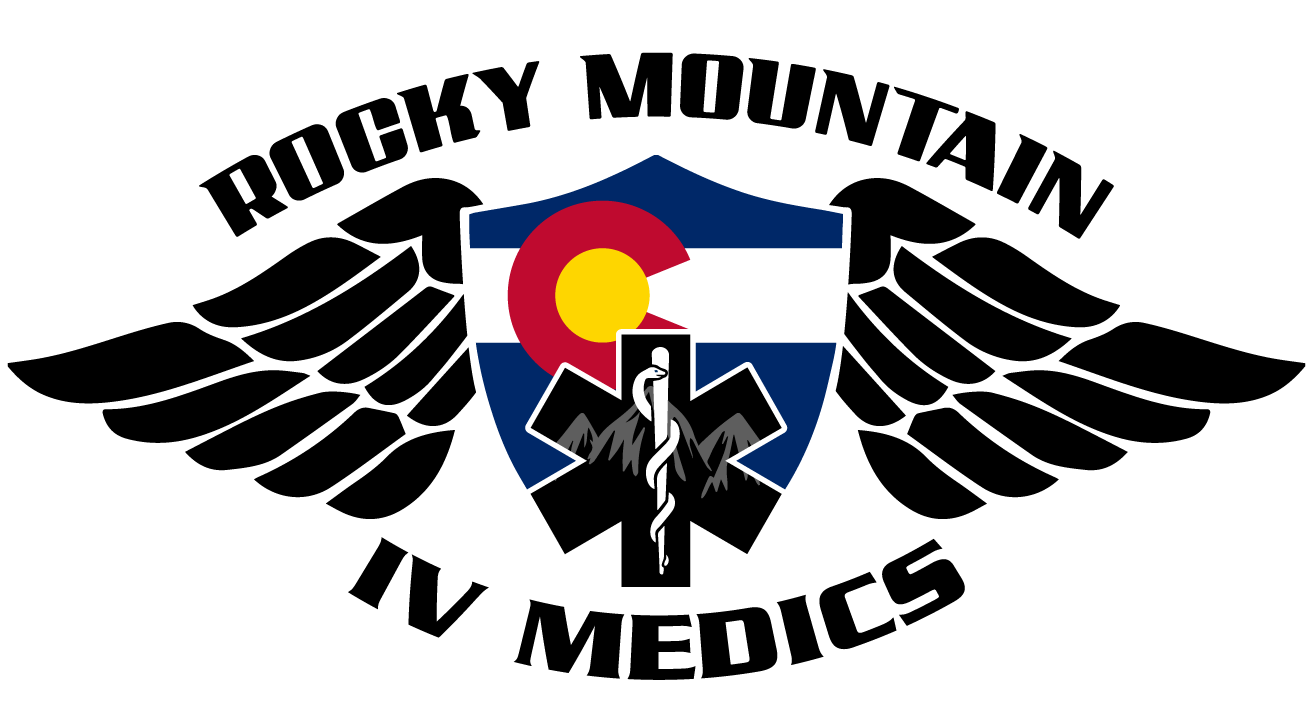Hiking Revival: Recover Faster with IV Therapy

Winter Glow: Achieve Radiant Skin with IV Therapy
March 14, 2023
IV Therapy for Golfers: Revive Your Game & Reduce Fatigue
March 14, 2023Hiking Revival: Recover Faster with IV Therapy

Colorado is one of the best places to hike in America. The breathtaking views are unparalleled, whether you’re exploring the waterfalls and lakes of Rocky Mountain National Park, the Flatirons of Boulder’s Chautauqua Park, or the world-famous landscape at Red Rocks Park.
Hiking isn’t just a walk in the park, though. Depending on the trail’s degree of difficulty, hiking can be a vigorous, intense physical workout. And especially in Colorado, high altitude and dehydration are always key concerns. So it’s important to take care of yourself before, during, and after a hike, and also know how to get rid of altitude sickness to avoid serious complications.
Schedule IV Therapy for Altitude Sickness
What Happens to Your Body After Hiking?
What happens to your body after hiking depends in large part on what you did before your hike. Did you take the proper precautions to reduce risks, such as drinking enough water, wearing the proper gear, and packing the right supplies? The better prepared you are, the more likely you’ll rebound quickly from a hike.
But there may be times when a hike is harder to conquer—perhaps you weren’t ready for the elevation, or there was an unexpected weather shift. If you pushed yourself a little too hard on the trail, you may be dehydrated or experience muscle cramps and aches after a hike.
And in Colorado, our majestic hiking trails can contribute to altitude sickness. This typically occurs at heights of 8,000 feet or above, but you may experience mild symptoms at lower elevations, especially during strenuous hikes or if you’re not used to hiking at higher altitudes.
Here are the main symptoms of altitude sickness:
- Headache
- Sleeplessness
- Dizziness
- Appetite loss
- Nausea and/or vomiting
- Rapid heart rate
- Shortness of breath while hiking
Symptoms can last for up to three days, and they can grow serious if left untreated. Water may help if you are dehydrated, but you’ll want special supplements for altitude sickness to help with symptom relief.
The Best Supplements for Altitude Sickness
If you want to know how to get rid of altitude sickness, make sure to try the following supplements for symptom relief:
- B Complex vitamins: This group consists of five B vitamins: B1 (thiamine), B2 (riboflavin), B3 (niacin), B5 (pantothenic acid), and B6 (pyridoxine). These vitamins can help with fatigue, nausea, headaches, and muscle pain, among other functions.
- Vitamin B12: Vital for nerve, brain, and blood health, B12 is a popular supplement for enhanced energy and mental clarity.
- Vitamin C: This vitamin supports the immune system and has antioxidants that guard against free radical damage.
- Glutathione: Another antioxidant powerhouse, glutathione is often used to support mental and physical well-being. Both vitamin C and glutathione may help alleviate muscle soreness caused by oxidative stress.
- Magnesium: This mineral plays a role in heart and bone health, and it can help maintain a steady heart rate.
- Zinc: Feeling worn out after a hike? Zinc helps strengthen the immune system.
However, you may need more than supplements for altitude sickness if you have stronger symptoms. Certain medications may be prescribed, such as Zofran for nausea or Toradol for intense pain caused by an injury.
If you’re suffering from altitude sickness, you may also be feeling the effects of dehydration. So, in addition to taking supplements, focus on rehydrating your body and replacing the fluids lost during a hike.
The Best Ways to Stay Hydrated after High Elevation
Drinking water before, during, and after a hike will help prevent dehydration, especially if you are summiting a mountain trail in hot weather. If you didn’t drink enough water in advance, and only have mild symptoms, then drinking water post-hike may do the trick. But if your symptoms are causing discomfort and won’t go away, you need the ultra-hydration of IV therapy.
An IV infusion offers powerful hydration for elevation-induced symptoms. Each drip bag contains sterile solutions, and these electrolyte-rich fluids can be customized with specific vitamins, minerals, and medications to alleviate altitude sickness symptoms.
Even better, an IV usually has a quicker, more powerful effect than oral medications or supplements. IV fluids enter the bloodstream directly, instead of passing through the digestive tract first. That means you get maximum absorption for optimal results. Many people who get IV therapy report feeling positive effects within 30 minutes of an infusion.
If you need an IV drip to recover from hiking, look for a mobile provider staffed with a team of medical professionals. You can get therapy at your home, hotel room, or other convenient location, so you don’t have to travel if altitude sickness leaves you feeling low.
Preventing Harm to Your Body after Hiking
If you want to feel great after a challenging hike, then take the following preventive measures before setting out on the trail:
- Take supplements to prepare for high altitude, which can lessen or prevent symptoms.
- Wear the proper gear, including well-fitted hiking boots, a hat, sunscreen, and weather-appropriate clothing. (And double check the forecast to make sure there’s not a sudden storm or heat wave on the horizon.)
- Drink plenty of water before the hike.
- Study the trail map to ensure it matches your fitness and experience levels.
- Eat a nutritious meal with protein, healthy fats, and carbs from produce or whole grains.
- Pack supplies, including water, trail snacks, and basic first-aid essentials (bandages, antibiotic ointment, etc.).
- Do some warm-up stretches to loosen the muscles.
After hiking:
- Drink water to rehydrate.
- Stretch to cool down the body and minimize soreness.
- Clean and treat any cuts, scrapes, or blisters as soon as possible.
- Refuel your body with whole foods.
- Get to a warm indoor location to warm up if you’ve been hiking in very cold weather to prevent frostbite.
- Get an IV with supplements for altitude sickness if symptoms persist.
- Seek medical attention if altitude sickness doesn’t improve or worsens.
Rocky Mountain IV Medics offers mobile IV therapy for altitude sickness and athletic recovery. Contact us today to take that first step toward feeling better.

